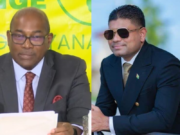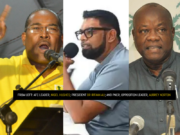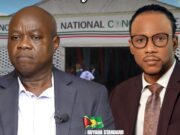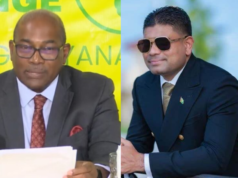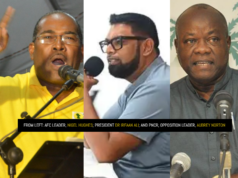Denying approval for the Carter Center to return to Guyana to observe the recount of the votes cast in the March 2 General and Regional Elections is a violation of International and Domestic Law, says Opposition-aligned Attorney-at-law, and former Legal Affairs Minister, Anil Nandlall.
In his column, “The Unruly Horse”, Nandlall posited a series of arguments illustrating this point. He said that the International Declaration of Human Rights, the United Nations Universal Declaration of Human Rights, the International Covenant of Civil and Political Rights, the American Declaration of Human Rights, the American Convention on Human Rights, the European Compendium of International Observation of Election, the Inter-American Democratic Charter and the UN Declaration of Principles for International Election Observation, are all international treaties to which Guyana has subscribed that concatenate to impose upon it, a duty under International Law to guarantee unimpeded access to international observer missions to monitor all stages of the elections process.
The Declaration of Principles for International Election Observation (UN 2015) states: “International election observation has the potential to enhance the integrity of election processes, by deterring and disposing irregularities and fraud… It can promote public confidence, as warranted, promote electoral participation and mitigate the potential for election-related conflict… International observation has become widely accepted around the world in providing accurate and impartial assessment about the nature of the electoral process… International election observation is conducted for the benefit of the people of the country holding the election and for the benefit of the international community.”
He said that the David Granger-led regime’s refusal to grant the Center permission to return to continue to observe the elections, is not only in violation of International Law, but, also constitutes a violation of Guyana’s obligations under various international treaties.
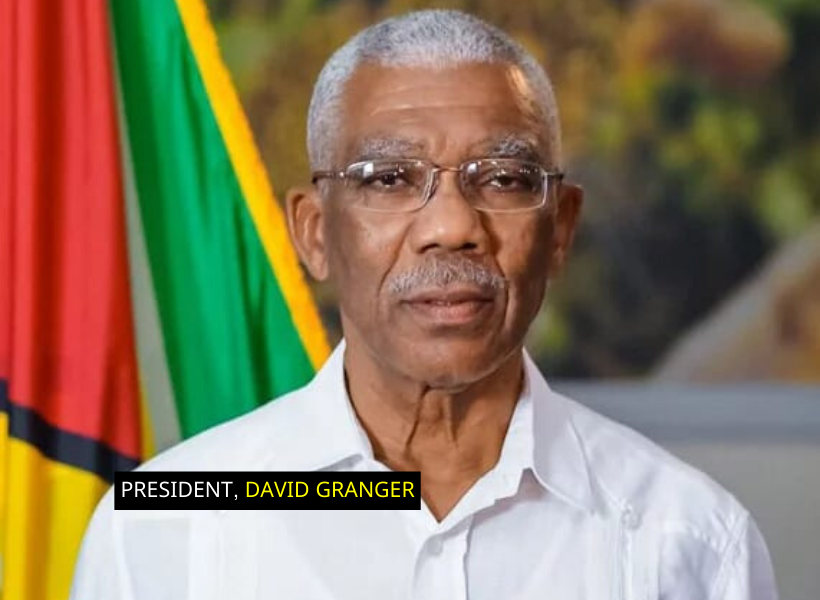
There is also a violation of domestic law which must also be highlighted, Nandlall said. He argued: “[The] Carter Center was invited, in writing by the President, under section 3 of the General Election Observers Act, Chapter 1:10, Laws of Guyana, ironically an Act that Carter Center itself helped to promulgate in 1990. Section 3(2) provides that the name of any person so invited shall be published in the Gazette and shall be issued with an identity card by the Chairman of the Elections Commission. Carter Center was among a list of observers that were published in the Gazette and were issued with an identity card by the Chairperson of GECOM, in compliance with section 3 of the said Act.”
The former Attorney General said this invitation has not been lawfully revoked, and to do so would require a written revocation from the President and a cancellation in writing of that identity card from the Chairperson of GECOM, along with, a notification of the same in the Official Gazette. None of this were done. Carter Center’s invitation to observe the elections, therefore, remains binding and enforceable.
Therefore, those who refused to grant approval to the CC would have committed multiple violations, Nandlall said.
The CC has been unsuccessful in its attempt to send an observer to witness the recount of the votes cast slated to commence tomorrow at the Arthur Chung Convention Centre, Liliendaal, East Coast Demerara from 8am. In its latest update via a tweet, yesterday, the CC said that it had deployed an observer to Miami, who was prepared to travel to Georgetown, Guyana, but the flight was denied approval to carry international elections observers. The Center said that it continues to reach out to government officials to understand what is required to allow Centre observers to Guyana to witness the recount process.
